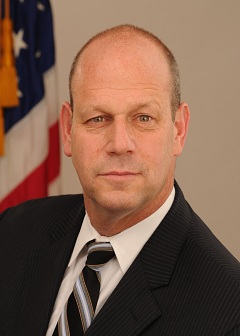Do-nothing House Republicans (and five pusillanimous Democrats) commit political seppuku with the passage of the ENFORCE Act -- a going-nowhere bill which would authorize civil suits against the President to dissuade him from doing something to husband scarce prosecutorial resources and ameliorate the harsh consequences of deportation for noncriminal violators of immigration regulations. As Rep. Luis Gutiérrez reminds us, prominent Republican House leaders advocated for the exercise of presidential authority and prosecutorial discretion before they turned against it -- the only difference being that this time they cannot suffer the insufferable, namely, that it be used by President Obama.
For their part, House Dems file a discharge petition seeking a vote on the Senate-passed comprehensive immigration reform bill, S. 744, while Minority Leader Nancy Pelosi admits that the votes are not there to prevail, thus making the effort look like a stunt pursued for political advantage.
Provocateur Ann Coulter spews anti-immigration vitriol at the gathering known as CPAC, the Conservative Political Action Conference, as she attacked “MSNBC, where they are celebrating the browning of America," compared immigration reform to “rape,” claimed that immigrants would upend the Social Security and Medicare programs, and espoused vigilantism (“If you pass amnesty, that's it. It's over, and then we organize the death squads for the people who wrecked America”).
Elsewhere in the land, activists for comprehensive immigration reform fast, while undocumented immigrants are denied bar licenses in Florida, but allowed to practice law in California.
Meanwhile, a U.S. citizen child must travel to Rome for a visit with Pope Francis -- a true friend of legal immigration -- and gains the release of her dad from immigration detention. This happens just before the President and the Pope meet to discuss immigration, an act that would perhaps be more meaningful had the Obama Administration, in releasing its proposed FY 2015 budget, not reflected conflicting priorities and the malapportionment of heavier spending on immigration enforcement than on benefits and immigrant integration.
All this time, U.S. Citizenship and Immigration Services (USCIS) has continued since December to make do without a permanent leader. Following the departure of Alejandro Mayorkas, the erstwhile and accomplished USCIS Director, appointed to serve as Deputy Secretary of Homeland Security, an acting director, career officer Lori Scialabba, has served as its interim leader and caretaker. While this beleaguered agency with a huge and hugely important mission and long-endemic problems has shown spunk and commendable results in some areas, such as public engagement, a new online "e-Request" form for simple-problem resolution, and the EB-5 immigrant-investor domain, growing problems only proliferate.

In written answers to various Senators' questions, he reaffirms his belief in the proper use of prosecutorial discretion and the need to protect internal agency whistleblowers from retaliation, agrees to meet with union representatives of USCIS employees, expresses support for recent USCIS reforms of the EB-5 program and states that in limited circumstances it is incumbent upon the USCIS Director to intervene in a pending case when the "outcome of adjudication is wrong, or when adjudication may present a legal, factual, or policy issue of broad application."
Unfortunately, the Senators' written questions to Mr. Rodriguez ignored many problems and challenges facing USCIS.
One of the most pressing is the L-1 intracompany-transferee visa category and the ever mounting rates of denials by USCIS of employer petitions seeking L-1B “specialized-knowledge” workers. As reported in the latest USCIS dataset (released through a Freedom of Immigration Act request by the American Immigration Lawyers Association), although as recently as FY 2006 the agency denied only 6% of L-1B petitions, rejections for lack of specialized knowledge jumped to 34% in FY 2013, after accelerating to 30% in FY 2012 – a five-fold increase in the denial rate even though the agency has not published any new regulation changing the adjudication standard. In a press release accompanying its recent report ("“L-1 Denial Rates for High Skill Foreign Nationals Continue to Increase”), the National Foundation for American Policy (NFAP) observed:
| Denial rates for L-1B petitions increased in FY 2012 and FY 2013 – after U.S. Citizenship and Immigration Services officials pledged in early 2012 to develop new proposed guidance, for public review and comment, in order to update and modernize the understanding of the specialized knowledge definition. The new proposed guidance never materialized and, in the eyes of employers and their attorneys, the situation has continued to provide inconsistent decision-making and the high levels of denials and Requests for Evidence have continued in the past two years. |
| Based on an NFAP examination of data for FY 2011 and earlier, it appears much of the increase in the denial rate has been focused on Indian nationals. U.S. Citizenship and Immigration Services denied more new L-1B petitions for Indians in FY 2009 (1,640) than in the previous 9 fiscal years combined (1,341 denials between FY 2000 and FY 2008). In FY 2009, the denial rate of new L-1B petitions for Indians increased to 22.5 percent even though there had been no change in the regulations. In contrast, for Canada, the UK, China and other countries the denial rate in FY 2009 ranged from 2.9 to 5.9 percent for new L-1B petitions. USCIS did not release country-specific data for FY 2012 and FY 2013 but interviews with employers and attorneys indicate the problems with receiving approvals for L-1B petitions involving Indian nationals have continued. |
Only a permanent and reform-minded USCIS Director, ushered forcefully through the Senate, even if Democrats are forced to deploy the "Nuclear Option," would have the clout to address this disturbing trend in lawless adjudication. Only an outsider with legal background sufficient to master the complexities of the Immigration and Nationality Act and a history of facing and overcoming entrenched bureaucratic lethargy and resistance, could fix the many daunting challenges still unaddressed at USCIS. Let's hope that Mr. Rodriguez is just such an individual and that his nomination is swiftly approved.


 RSS Feed
RSS Feed
